Advocates discussed 10 topics of large-scale privatization with the acting head of the State Property Fund of Ukraine
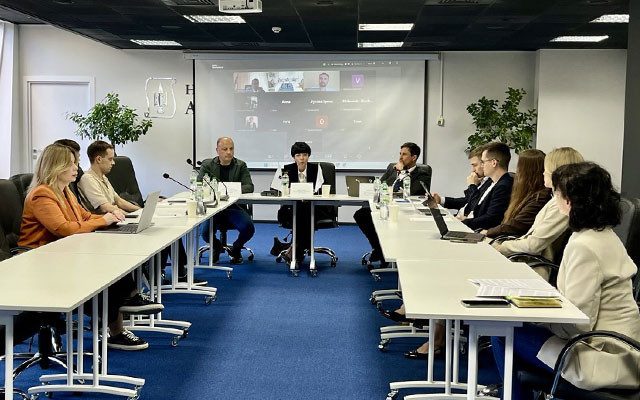
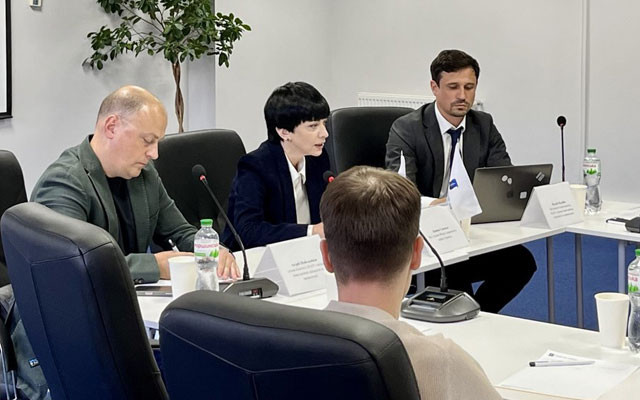
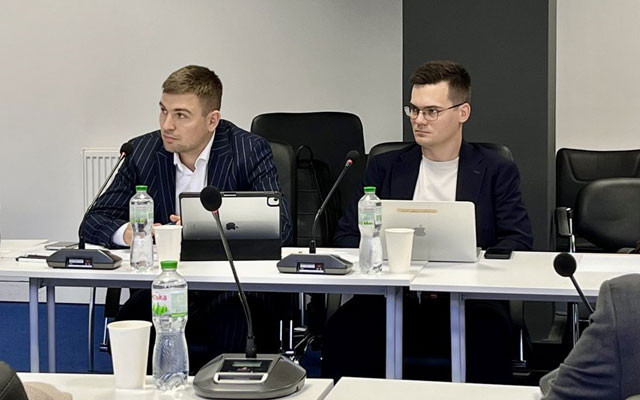
Large-scale privatization is a topic that rarely becomes the subject of public debate, although the economic future of the country largely depends on it. How exactly does the state choose what to sell, on what terms, and what mechanisms does it use to protect itself and investors? How does it deal with problematic assets, sanctioned property, and international buyers?
During a special event organized by the UNBA Committee on Investment and Privatization, advocates had the opportunity to ask direct questions to Ivanna Smachylo, the acting head of the State Property Fund of Ukraine. The open dialogue allowed not only to assess the results of privatization in 2024, but also to look into the plans for 2025. The event was moderated by the Committee chairman Andriy Shabelnikov and his deputy Vitaliy Zhadobin.
How Prozorro changed the rules of the game in large-scale privatization
The launch of large-scale privatization through the Prozorro electronic system last year marked the beginning of a new phase in the disposal of state property. Unlike previous procedures, now none of the participants in the process, including the State Property Fund of Ukraine, know in advance who exactly will take part in the auction. Information about the applicants becomes available only a few hours before the auction, and the identities of the participants are revealed only after the auction is over. This approach makes informal influence virtually impossible and minimizes the risk of manipulation, both for the state and for potential buyers.
According to I. Smachylo, this technical step, which at first glance seems insignificant, has significantly changed trust in the process: investors have begun to participate more actively, seeing that the conditions are the same for everyone. Prozorro's previous experience in small-scale privatization confirmed the effectiveness of this tool, but it was only in 2024 that it was scaled up to large objects. As a result, there has been positive momentum in bidding, increased competition, and a willingness on the part of businesses to invest even during martial law.
Why does the state agree to international arbitration in disputes with investors
One of the practical signs of a change in privatization policy is the state's willingness to agree to the consideration of potential disputes in international jurisdiction if the investor so desires. The head of the State Property Fund of Ukraine emphasized that this approach is the result of an awareness of the new realities of negotiations. If the state is interested in attracting foreign capital, it must take into account the expectations of investors and demonstrate flexibility.
Previously, the State Property Fund did not provide for the possibility of international arbitration in contracts. This was first implemented during the new wave of large-scale privatization. The agreements began to provide an option for the buyer to refer disputes not to Ukrainian courts but to a designated international institution. This compromise is necessary but justified, as it lowers barriers to entry for large capital and strengthens confidence in the entire privatization process.
Sanctioned assets: new sources of revenue for the budget
One of the most notable results of 2024 was the full inclusion in privatization of so-called sanctioned assets—property that previously belonged to individuals subject to sanctions. According to I. Smachylo, the possibility of selling such assets arose after the completion of lengthy regulatory approvals in 2023. Since then, these assets have been transferred to state ownership on the basis of court decisions and, depending on their value, included in small or large privatization programs.
A special feature is that the proceeds from such sales are not directed to the general budget, but to a special financing code — the Fund for the Elimination of the Consequences of Armed Aggression. The use of already established privatization procedures (instead of creating new mechanisms for sanctioned property) not only saves time and resources but also ensures legal protection for the new owner.
In 2024, a number of successful cases were implemented, including the sale of the AERO company, 100% of whose corporate rights were put up for sale with a starting price of UAH 800 million and sold for UAH 1.89 billion. This example, as I. Smachylo emphasized, refutes the widespread myth that selling during wartime means selling cheaply.
What the state puts up for sale and how the «privatization package» is formed
Today, the State Property Fund manages more than 2,100 state-owned enterprises and more than 1,500 objects related to sanctions. A significant part of this property is neglected, without documentation, recorded assets, or even personnel. According to the Fund, only about 5.5% of state-owned enterprises in the country are profitable — this refers not only to institutions under the management of the SPF, but to the entire sector.
Therefore, according to the head of the Fund, most enterprises are subject to privatization, lease, or liquidation. Before an enterprise is transferred to the Fund, it must undergo preparation: inventory, assessment, and identification of legal and accounting issues. In reality, as the Fund acknowledges, this happens extremely rarely — most objects are received in an extremely neglected state, requiring months of restoration of documentation, property rights, etc.
During the discussion, advocates raised the issue of «pre-privatization packaging»: can objects be transferred to the Fund already in a condition suitable for quick lease or sale? Although this model seems ideal, the participants agreed that today the Fund is forced to carry out the entire preparation cycle on its own, otherwise the property will remain idle for years and only accumulate debts.
Privatization conditions and abuse: what advocates should know
Advocates drew attention to one of the key aspects of large-scale privatization—the conditions under which the state transfers objects to private ownership. The very wording of such conditions often becomes a source of legal uncertainty or, conversely, opportunities for manipulation. As I. Smachylo explained, the conditions are determined by an auction commission, which includes not only representatives of the Fund, but also enterprises, law enforcement agencies, and in the case of large-scale privatization, they are approved by a government decision.
The most common typical obligations are the repayment of wage and tax arrears, as well as guarantees to retain staff for a specified period. In addition, investment obligations are established for individual objects, such as maintaining the profile of activities, investing a certain amount of funds, or implementing a business plan. At the same time, it is important that the conditions are specific and clear. Otherwise, there is a risk of double interpretation of performance, both on the part of the buyer and on the part of the Fund.
Special attention is paid to prohibiting the repayment of debts to sanctioned persons. Such conditions are explicitly included in government decisions, and the amounts of such debts, as noted, are sometimes artificially inflated. This is one of the preventive mechanisms for protecting the public interest in the sale of sensitive assets.
Is transparent privatization possible in the context of collusion among auction participants
One of the practical questions that sparked lively debate concerned situations where the Antimonopoly Committee discovers collusion between participants after the auction has ended and the purchase agreement has been signed. Participants in the discussion drew attention to a serious loophole: currently, the law does not provide for a mechanism for automatically returning property to state ownership in the event of such a violation.
As I. Smachylo explained, the only possible way at present is through a court appeal and the return of the property to the state, followed by a new auction. Participants in the event suggested that in the event of collusion, an investor whose participation is deemed illegal could delay the court proceedings, effectively preventing a resale for years.
According to those present, the idea of amending the legislation needs to be discussed: for example, granting the Fund the right to automatically cancel the results of the auction and revoke ownership on the basis of a decision by the AMCU. At the same time, the head of the Fund warned against excessive discretion: if such powers are exercised without proper safeguards, the risk of abuse and pressure on investors will increase. The key principle that the state must adhere to is a balance of interests.
Military risks: why investors still have no guarantees
Despite the intensification of the privatization process, the issue of military risk insurance remains open. As acknowledged by the acting head of the SPFU, there is currently no effective mechanism to guarantee compensation to investors in the event of destruction of property as a result of hostilities. This issue has been discussed for over two years, including with international partners. However, none of the schemes, including those developed with the support of USAID, have yet been implemented in practice.
According to I. Smachylo, Poland is closest to resolving this issue: it has introduced a model of insurance against military risks, but it only applies to Polish companies entering Ukraine. And even they are not rushing to invest in the public sector, focusing mainly on private assets.
Therefore, each investor bears the risks independently and, if necessary, uses their own informal means of reinsurance. According to the participants of the discussion, the ideal model is either an insurance system through international companies or the creation of a state or supranational compensation fund. However, such a model requires significant funds, and there are currently no real prospects for its launch.
Ocean Plaza: how the state managed to get 1.6 billion before the sale
As one of the most illustrative cases of the Fund's work with problematic but profitable assets, I. Smachylo cited the example of Ocean Plaza. This is a stake in a shopping and entertainment center in the capital, which became state property following a court decision in a case involving sanctioned property. The initial valuation of this stake was around UAH 1.6 billion, but the main problem was the burden of approximately UAH 9 billion in liabilities that would fall on the new owner after the sale.
To increase the attractiveness of the property, the Fund agreed with the current management of Ocean Plaza on early debt servicing. As a result, starting in February 2025, the company began to gradually repay the loan from its gross profit. At the time of the speech, more than UAH 1.6 billion had already been paid, an amount equivalent to the starting price of the state share.
This approach not only reduces the burden on potential investors but also ensures real budget revenues even before privatization. According to the head of the Fund, this is one of the rare cases where the state has managed to force the current owner not only to service the asset but also to fulfill its financial obligations to the budget in full.
Why are assets sometimes sold cheaply and is there an alternative to privatization
The issue of so-called fire-sale privatization has been raised repeatedly in the public sphere. As I. Smachylo explained during the event, in most cases, the low starting price of an asset is not determined by its real value, but by the large amount of debt and problems that the investor will have to take on. These include not only tax and salary obligations, but also legal disputes, the need for modernization, the return of lost assets, etc. According to her, in some cases, the debts exceed the value of the asset several times over, and the state is simply getting rid of a chronically unprofitable enterprise that generates new losses every day.
Despite this, the Fund does not limit itself to direct sales. As the head of the institution noted, the legislation allows for other mechanisms, in particular the transfer of property for lease or the use of a public-private partnership (PPP) model. In 2024, a new version of the PPP law was adopted, which has the potential to create a real tool for cases where an object has social or other significance, but its privatization is not desirable.
However, in the past, PPPs in Ukraine have often been associated with a lack of transparency, and only a small number of projects have shown positive results. Therefore, the Fund is cautious about this model, but does not rule out its use.
Courts, trust, and jurisdiction: is it possible to retain investors in Ukraine
One of the questions raised by advocates concerned why the state does not insist on the consideration of privatization disputes in domestic courts. After all, given the professional position of the legal community, foreign arbitration is a loss of trust in the national jurisdiction and a missed opportunity for the development of the Ukrainian legal system.
I. Smachylo acknowledged the problem but stressed that despite the Fund's desire to ensure maximum legal certainty within the country, real negotiations with big business suggest otherwise. Investors themselves initiate the inclusion of provisions on international jurisdiction in contracts, and the state agrees to this because otherwise it risks not attracting capital. At the same time, she said, this practice sends a signal to other potential participants that the state is ready for transparent and predictable dialogue.
The acting head of the Fund emphasized that everyone should do their job. The Fund must ensure proper privatization, while reforming the judicial system is the task of other institutions. However, the issue of trust in Ukrainian courts remains an element of the overall environment that affects the country's investment attractiveness.
Commenting on the results of the event, A. Shabelnikov noted that large-scale privatization issues remain complex from both a legal and political point of view. However, it is precisely the open dialogue between the state, business, and the legal community that will determine whether this tool will be effective for economic recovery.
Popular news
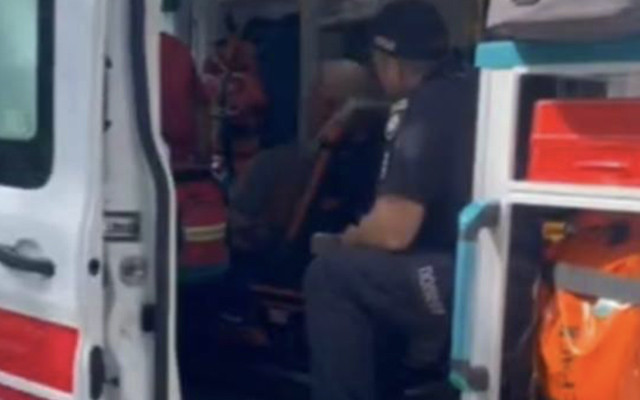
Advocacy
Another conflict with the TCC: an advocate's leg was broken and his client jumped out of a window
On June 19, at the premises of the military medical commission, where a bus from the Krasnograd Territorial Center for Recruitment and Social Support delivered several people, an incident occurred involving the use of physical force against an advocate.
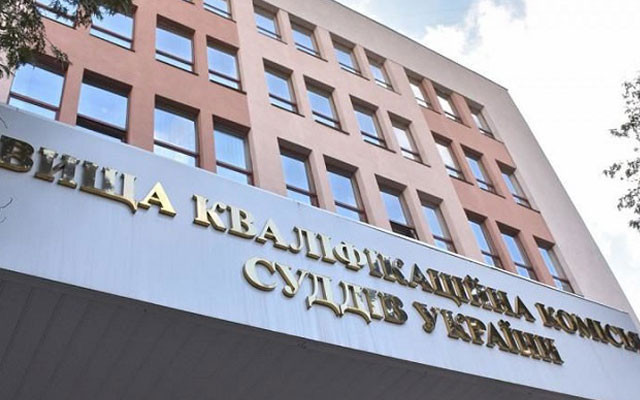
Advocacy
The Bar Council of Ukraine appealed to the High Council of Justice due to delays in forming the Competition Commission of t…
On June 13, 2025, Lidiya Izovitova, President of the Bar Council of Ukraine, addressed Grigory Usik, Head of the High Council of Justice, regarding the violation of the deadlines for forming a new composition of the Competition Commission for the selection of members of the High Qualification Commission of Judges of Ukraine.
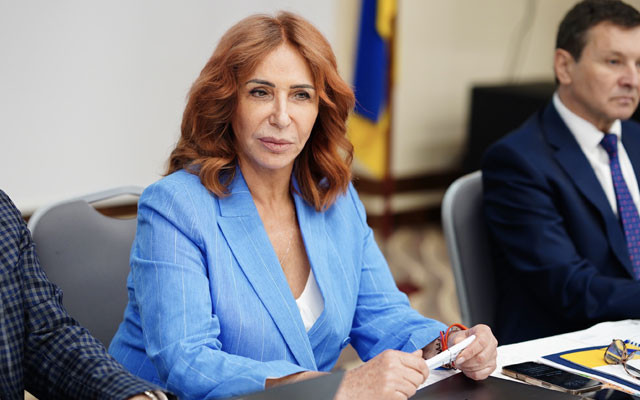
Advocacy
UNBA calls for compliance with Council of Europe standards for the legal profession
The recently approved roadmap for EU accession in terms of bar reform refers to non-existent European standards and was adopted in violation of international principles. Therefore, before talking about changes, it is necessary to compare the current model of the bar with the Council of Europe standards embodied in the Convention on the Protection of the Profession of Lawyer.
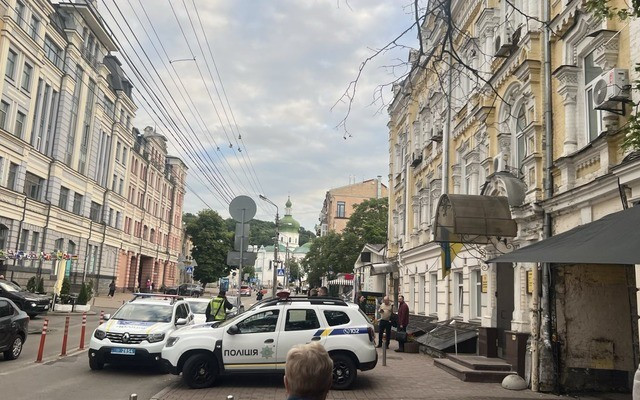
Advocacy
Mobilization of advocates in court: UNBA records another case of pressure
The Ukrainian advocacy has once again faced extrajudicial influence on advocates with the aim of obstructing the exercise of their legitimate powers related to the provision of professional legal assistance to clients.
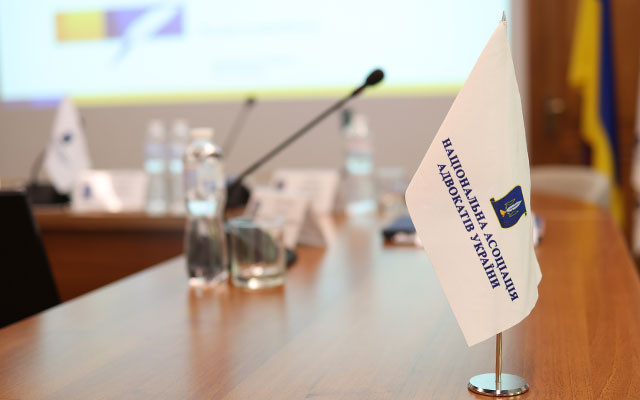
Advocacy
BCU demands verification of authenticity of SSU letter on «dangerous» advocacy
The Bar Council of Ukraine will appeal to the head of the Security Service of Ukraine, Vasyl Malyuk, regarding the verification of information about «negative trends in the legal profession» disseminated by some media outlets on behalf of the SSU.
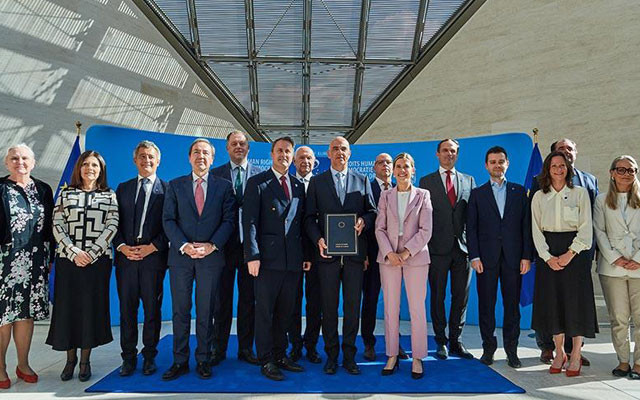
Advocacy
Council of Europe Convention on the Protection of the Profession of Advocate open for signature
Thirteen member states of the Council of Europe have signed the Convention on the Protection of the Profession of Advocate, which was adopted by the Committee of Ministers of the Council of Europe on March 12, 2025. Four more countries will do so today. Ukraine is not among them.
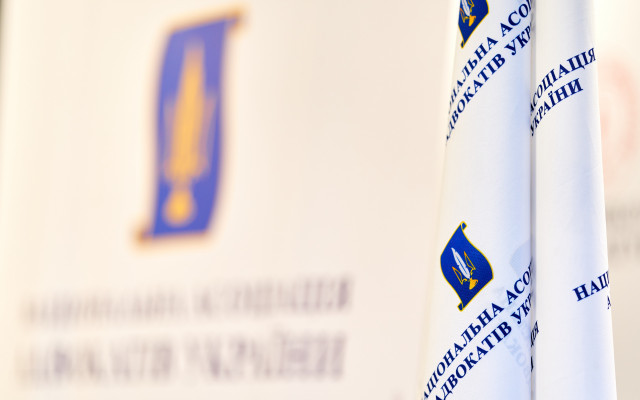
Advocacy
BCU initiates resolution of the issue of visits by advocates to convicted persons
Article 110 of the Criminal Enforcement Code guarantees convicted persons confidentiality of meetings with their advocate. One of the important elements is the possibility to communicate with an advocate in a room without a solid partition. In practice, this provision of the law is systematically violated.
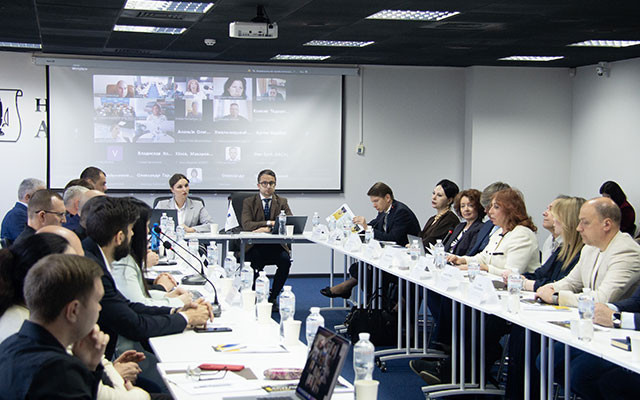
Advocacy
Advocates, academics, and experts examine problems in forensic examination (video)
The Ukrainian National Bar Association, in cooperation with leading scientific and research institutes of forensic expertise, organized a round table on expert support for legal practice.
Publications

Ihor Kolesnykov A BRIEF SUMMARY REGARDING THE APPLICATION OF THE ORDER ON EXTENDED CONFISCATION IN LATVIA REGARDING FINANCIAL ASSETS OF…

Valentyn Gvozdiy WORKING IN A WAR ZONE

Lydia Izovitova Formula of perfection

Sergiy Vylkov Our judicial system is so built that courts do not trust advocates

Iryna Vasylyk Advocacy in the proclamation of Independence of Ukraine

Oleksandr DULSKY When we cross the border of the Supreme Anti-Corruption Court, we get into another department of the National Anti-Corruption…

Vadym Krasnyk The UNBA will work, and all obstacles and restrictions are only temporary inconveniences

Lydia Izovitova Interview with Lydia Izovitova on the occasion of the 8th anniversary of the founding of UNBA: We are the voice of t…
